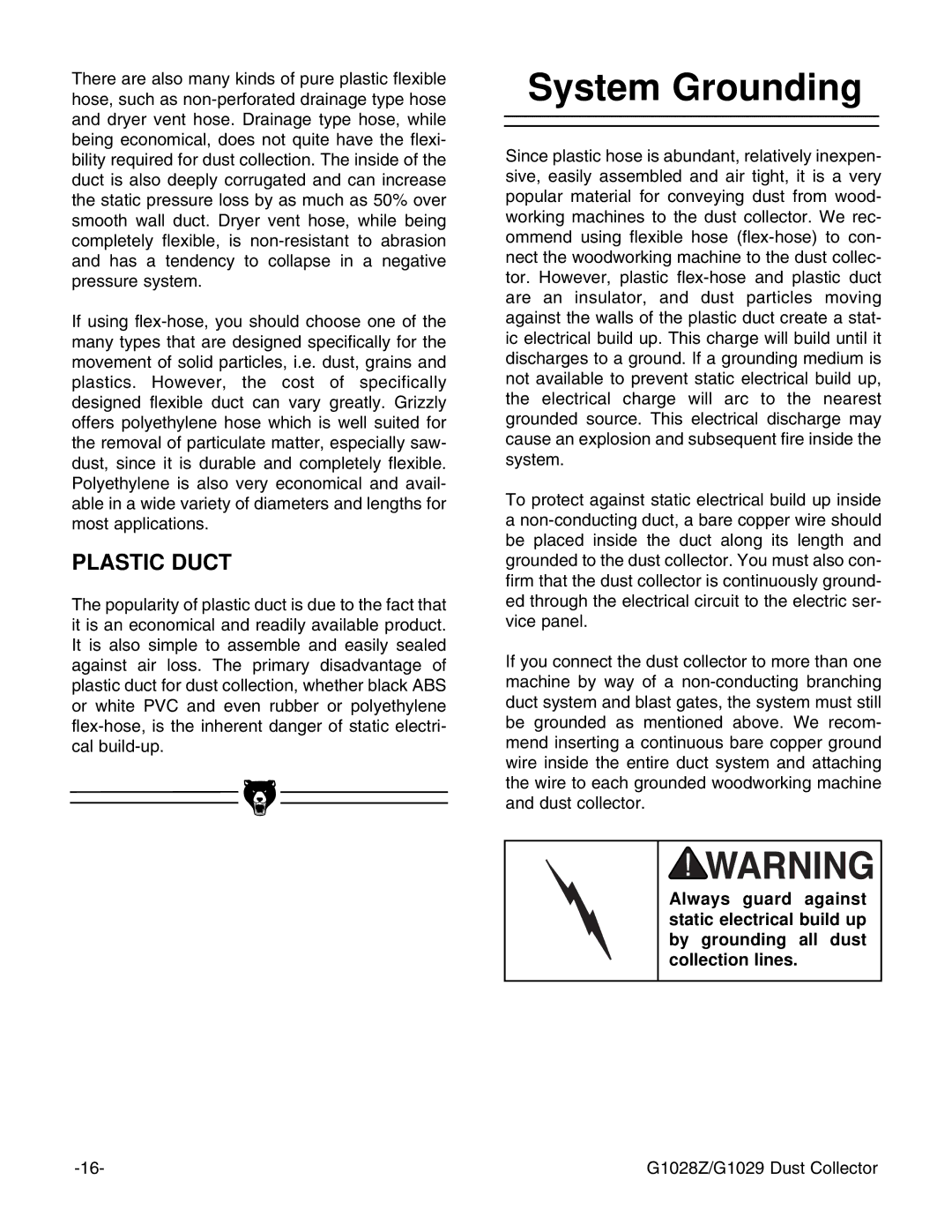There are also many kinds of pure plastic flexible hose, such as non-perforated drainage type hose and dryer vent hose. Drainage type hose, while being economical, does not quite have the flexi- bility required for dust collection. The inside of the duct is also deeply corrugated and can increase the static pressure loss by as much as 50% over smooth wall duct. Dryer vent hose, while being completely flexible, is non-resistant to abrasion and has a tendency to collapse in a negative pressure system.
If using flex-hose, you should choose one of the many types that are designed specifically for the movement of solid particles, i.e. dust, grains and plastics. However, the cost of specifically designed flexible duct can vary greatly. Grizzly offers polyethylene hose which is well suited for the removal of particulate matter, especially saw- dust, since it is durable and completely flexible. Polyethylene is also very economical and avail- able in a wide variety of diameters and lengths for most applications.
PLASTIC DUCT
The popularity of plastic duct is due to the fact that it is an economical and readily available product. It is also simple to assemble and easily sealed against air loss. The primary disadvantage of plastic duct for dust collection, whether black ABS or white PVC and even rubber or polyethylene flex-hose, is the inherent danger of static electri- cal build-up.
System Grounding
Since plastic hose is abundant, relatively inexpen- sive, easily assembled and air tight, it is a very popular material for conveying dust from wood- working machines to the dust collector. We rec- ommend using flexible hose (flex-hose) to con- nect the woodworking machine to the dust collec- tor. However, plastic flex-hose and plastic duct are an insulator, and dust particles moving against the walls of the plastic duct create a stat- ic electrical build up. This charge will build until it discharges to a ground. If a grounding medium is not available to prevent static electrical build up, the electrical charge will arc to the nearest grounded source. This electrical discharge may cause an explosion and subsequent fire inside the system.
To protect against static electrical build up inside a non-conducting duct, a bare copper wire should be placed inside the duct along its length and grounded to the dust collector. You must also con- firm that the dust collector is continuously ground- ed through the electrical circuit to the electric ser- vice panel.
If you connect the dust collector to more than one machine by way of a non-conducting branching duct system and blast gates, the system must still be grounded as mentioned above. We recom- mend inserting a continuous bare copper ground wire inside the entire duct system and attaching the wire to each grounded woodworking machine and dust collector.
Always guard against static electrical build up by grounding all dust collection lines.

